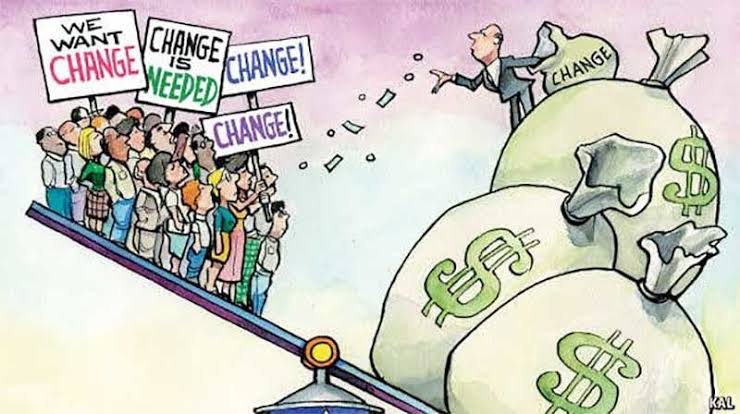By Zion Rufus
A recent report by the World Bank has revealed that trillions of dollars being “wasted” on subsidies for agriculture, fishing, and fossil fuels could instead be utilized to combat climate change and benefit both people and the planet.
Contained in the report, titled “Detox Development: Repurposing Environmentally Harmful Subsidies,” the World Bank highlighted that global direct government expenditures in these three sectors amount to a staggering $1.25 trillion annually, which is roughly equivalent to the size of a major economy like Mexico.
The report also shed light on the detrimental effects of government subsidies, with $577 billion allocated in 2021 to artificially reduce the cost of polluting fuels such as oil, gas, and coal.
It further stated that these subsidies not only contribute to climate change but also lead to toxic air pollution, inequality, inefficiency, and mounting debt burdens.
“By redirecting these subsidies, we could unlock a minimum of half a trillion dollars that could be channeled towards more productive and sustainable endeavors,” the report stated.
Alarmingly, countries spend approximately six times more on subsidizing fossil fuel consumption than what they committed to mobilize annually under the Paris Agreement for renewable energies and low-carbon development.
This discrepancy underscores the misallocation of resources, with potentially significant implications for the environment.
Axel van Trotsenburg, the Senior Managing Director of the World Bank, emphasized that the money required to address climate change does exist; it is simply being directed towards the wrong areas.
“By repurposing these wasteful subsidies, which amount to trillions of dollars, we could collectively tackle some of the most pressing challenges facing our planet,” Trotsenburg said.
However, the issue extends beyond direct government expenditures. The report also examined the harmful impact of implicit subsidies, which amount to a staggering $6 trillion per year. These costs represent the toll on both people and the planet, including pollution, greenhouse gas emissions, road congestion, and the destruction of nature, all resulting from these subsidies.
In the agricultural sector alone, direct subsidies surpass $635 billion annually. These subsidies incentivize excessive fertilizer use, leading to soil and water degradation, as well as adverse effects on human health. Subsidies for products such as soybeans, palm oil, and beef drive deforestation, accounting for 14 percent of annual forest loss.
Fisheries subsidies, totaling over $35 billion each year, contribute significantly to declining fish stocks, oversized fishing fleets, and diminishing profitability. Considering that more than 1 billion impoverished individuals depend on fish as their primary source of animal protein, it is imperative to restore the world’s fish stocks to a healthy state.
The combustion of oil, gas, and coal results in approximately 7 million premature deaths worldwide each year due to poor air quality, disproportionately affecting marginalized communities.
Richard Damania, Chief Economist of the Sustainable Development Practice Group at the World Bank, emphasizes that by repurposing subsidies with foresight and planning, we can allocate more resources to improve people’s quality of life and ensure a better future for our planet. Although best practices for subsidy reform are already known, implementing them is challenging due to entrenched interests, complex political dynamics, and other barriers.
For successful subsidy reform, governments must compensate the most vulnerable groups through social assistance programs like cash transfers. Additionally, they should focus on building public acceptance through transparent communication, allowing individuals and businesses sufficient time to adapt, and demonstrating how the freed-up revenue is reinvested to support long-term development.
photo credit: CPD







Comment
No comments found.